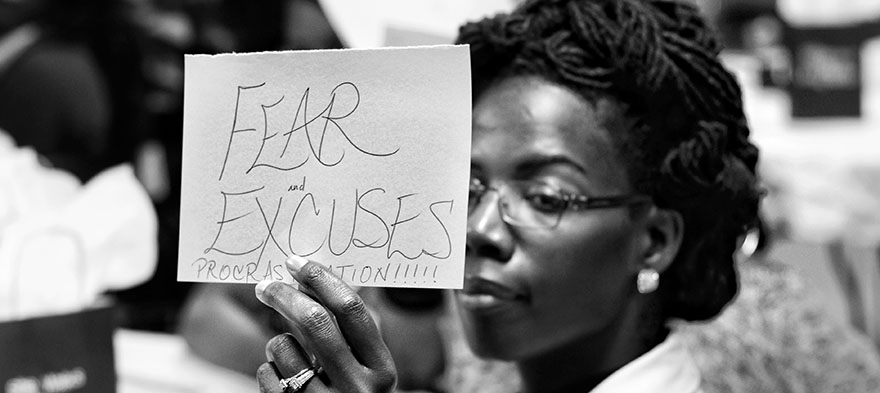
Those who profess to favor freedom and yet depreciate agitation, are people who want crops without ploughing the ground; they want rain without thunder and lightning; they want the ocean without the roar of its many waters. The struggle may be a moral one, or it may be a physical one, or it may be both. But it must be a struggle. Power concedes nothing without a demand. It never did and it never will.Allies, move over. Make room for our accomplices.
Sharif El-Mekki is the Founder and CEO of the Center for Black Educator Development. The Center exists to ensure there will be equity in the recruiting, training, hiring, and retention of quality educators that reflect the cultural backgrounds and share common socio-political interests of the students they serve. The Center is developing a nationally relevant model to measurably increase teacher diversity and support Black educators through four pillars: Professional learning, Pipeline, Policies and Pedagogy. So far, the Center has developed ongoing and direct professional learning and coaching opportunities for Black teachers and other educators serving students of color. The Center also carries forth the freedom or liberation school legacy by hosting a Freedom School that incorporates research-based curricula and exposes high school and college students to the teaching profession to help fuel a pipeline of Black educators. Prior to founding the Center, El-Mekki served as a nationally recognized principal and U.S. Department of Education Principal Ambassador Fellow. El-Mekki’s school, Mastery Charter Shoemaker, was recognized by President Obama and Oprah Winfrey, and was awarded the prestigious EPIC award for three consecutive years as being amongst the top three schools in the country for accelerating students’ achievement levels. The Shoemaker Campus was also recognized as one of the top ten middle school and top ten high schools in the state of Pennsylvania for accelerating the achievement levels of African-American students. Over the years, El-Mekki has served as a part of the U.S. delegation to multiple international conferences on education. He is also the founder of the Fellowship: Black Male Educators for Social Justice, an organization dedicated to recruiting, retaining, and developing Black male teachers. El-Mekki blogs on Philly's 7th Ward, is a member of the 8 Black Hands podcast, and serves on several boards and committees focused on educational and racial justice.
The fight for educational equity has never been just about schools. The real North Star for this work is providing opportunities for each child to thrive into adulthood. This means that our advocacy...
Your donation will support the work we do at brightbeam to shine a light on the voices who challenge decision makers to provide the learning opportunities all children need to thrive.
Ed Post is the flagship website platform of brightbeam, a 501(c3) network of education activists and influencers demanding a better education and a brighter future for every child.
© 2020–2024 brightbeam. All rights reserved.